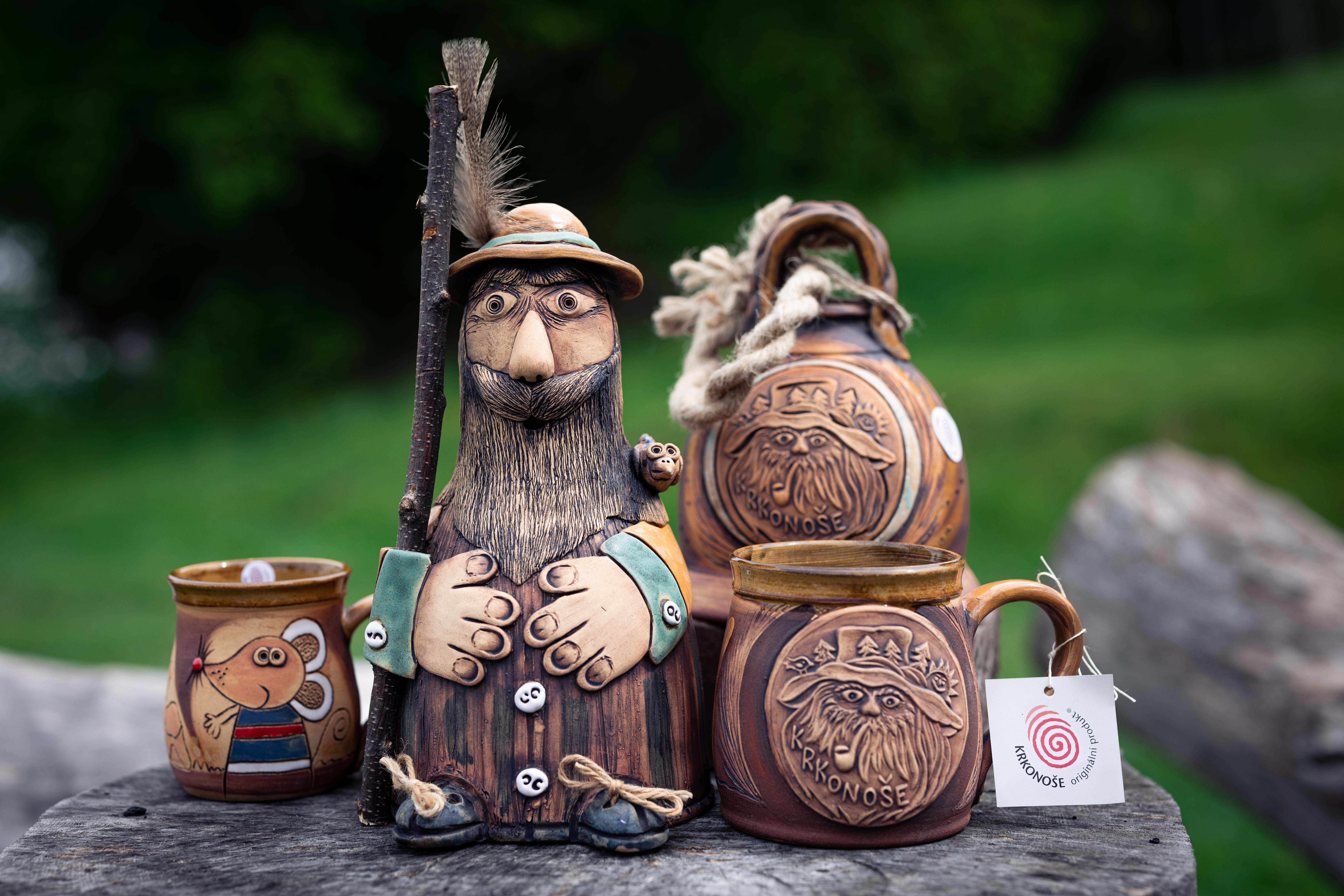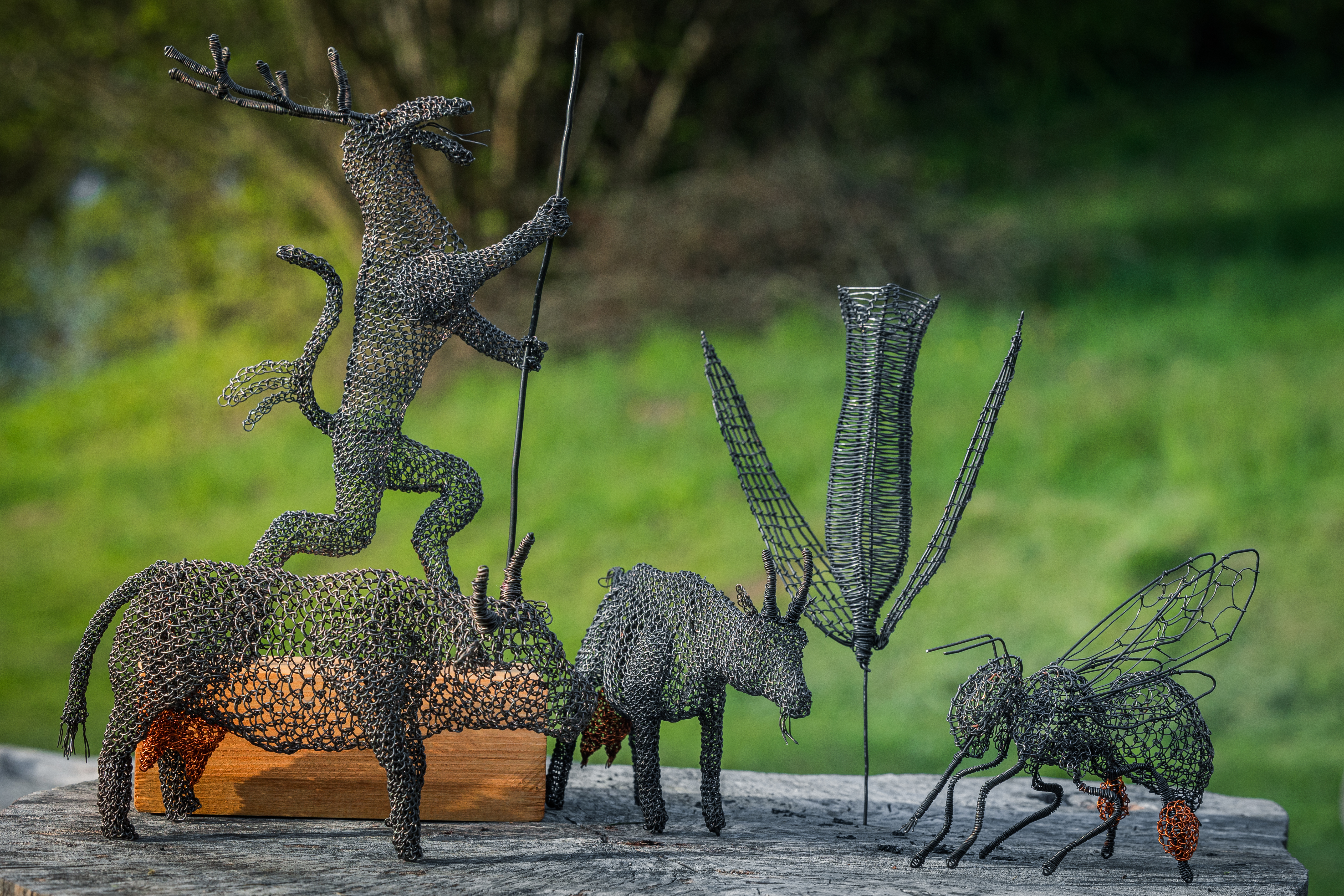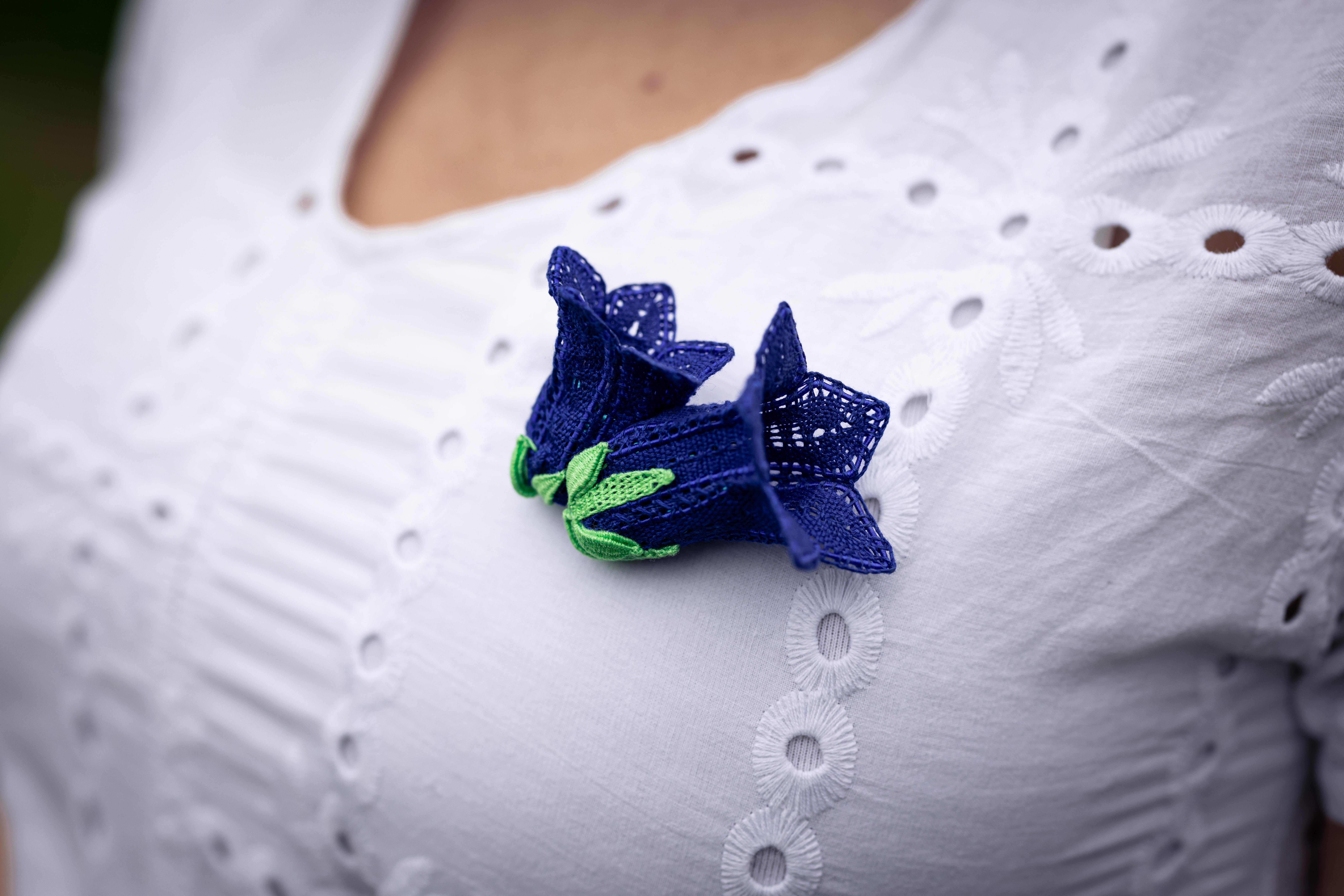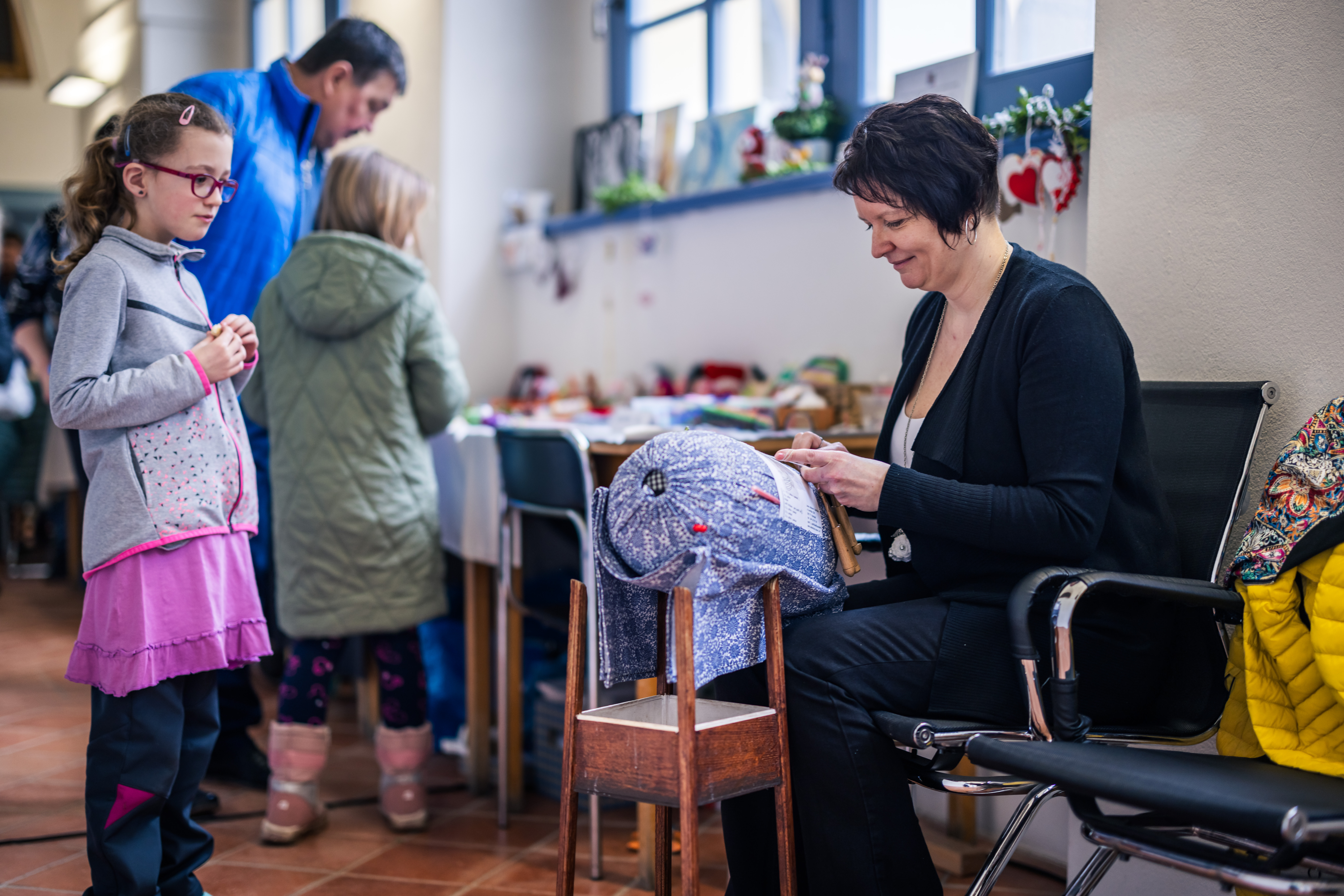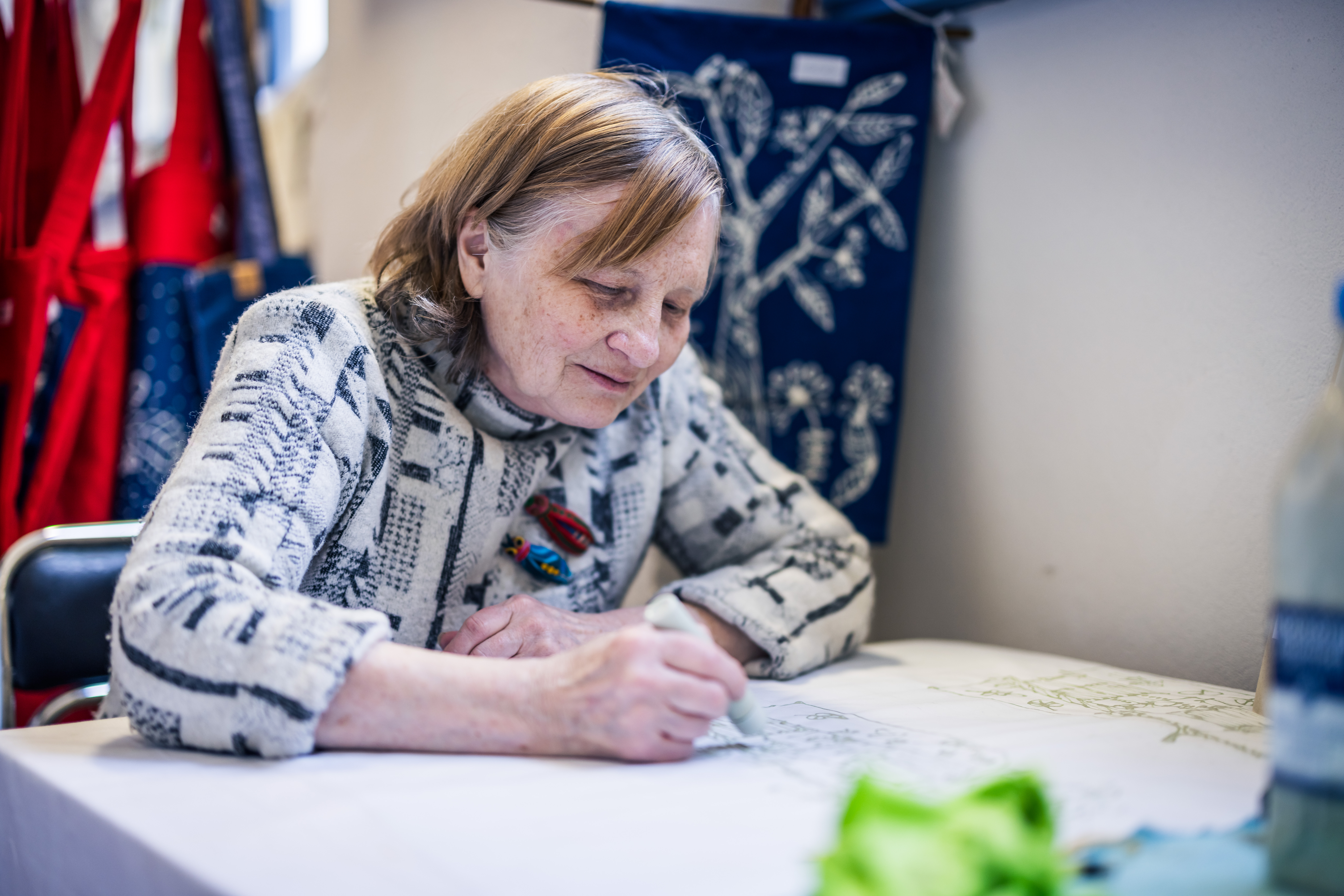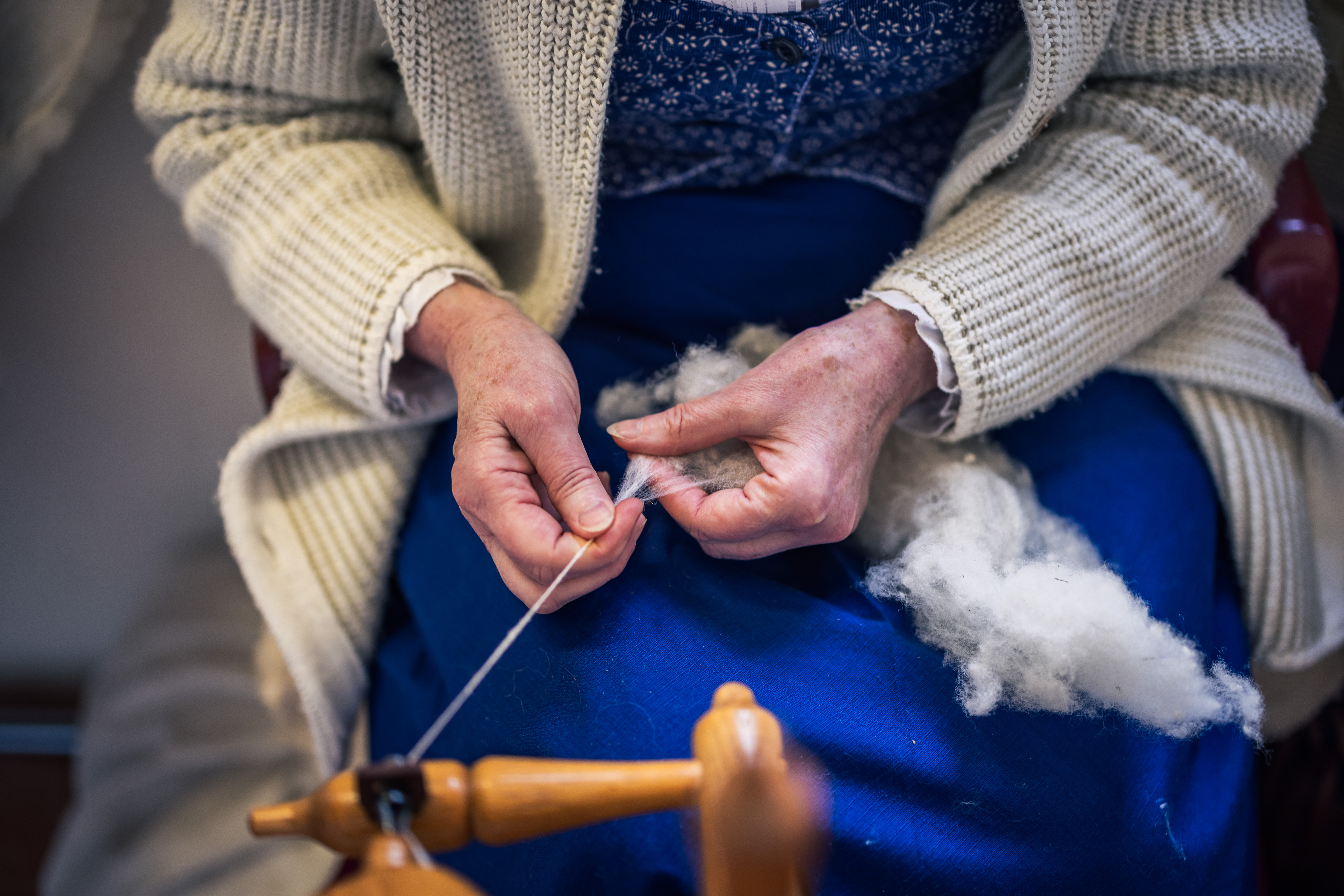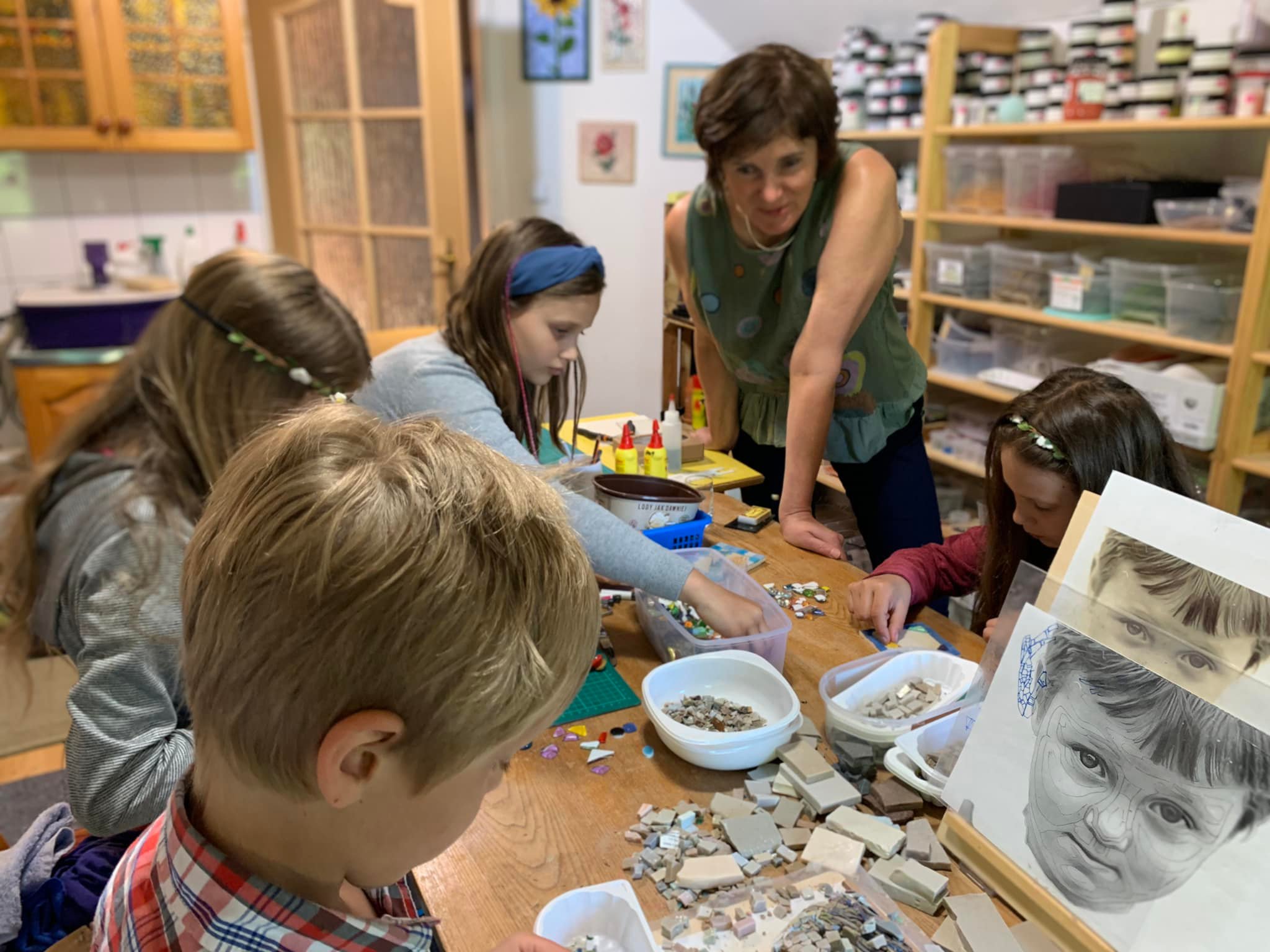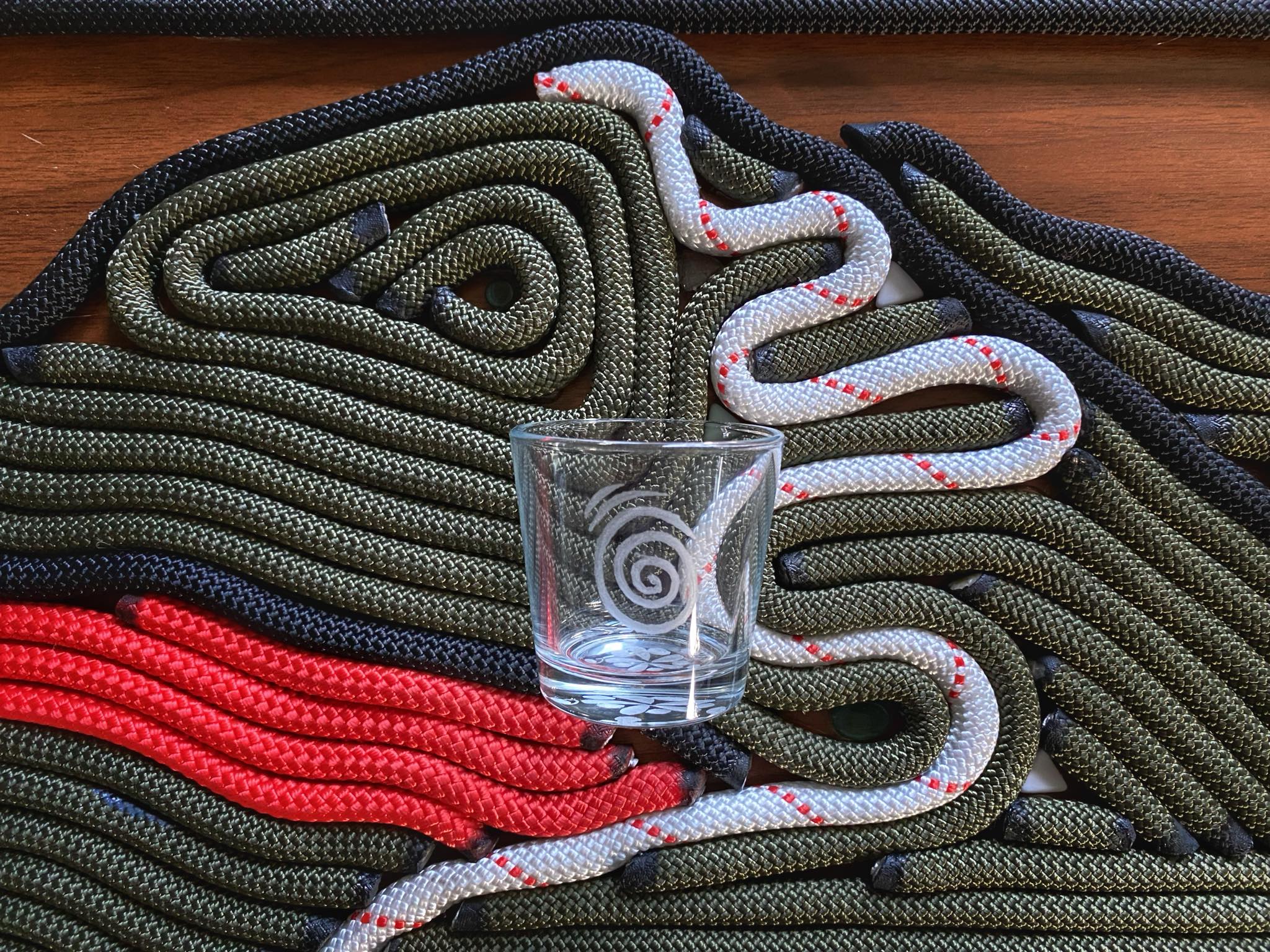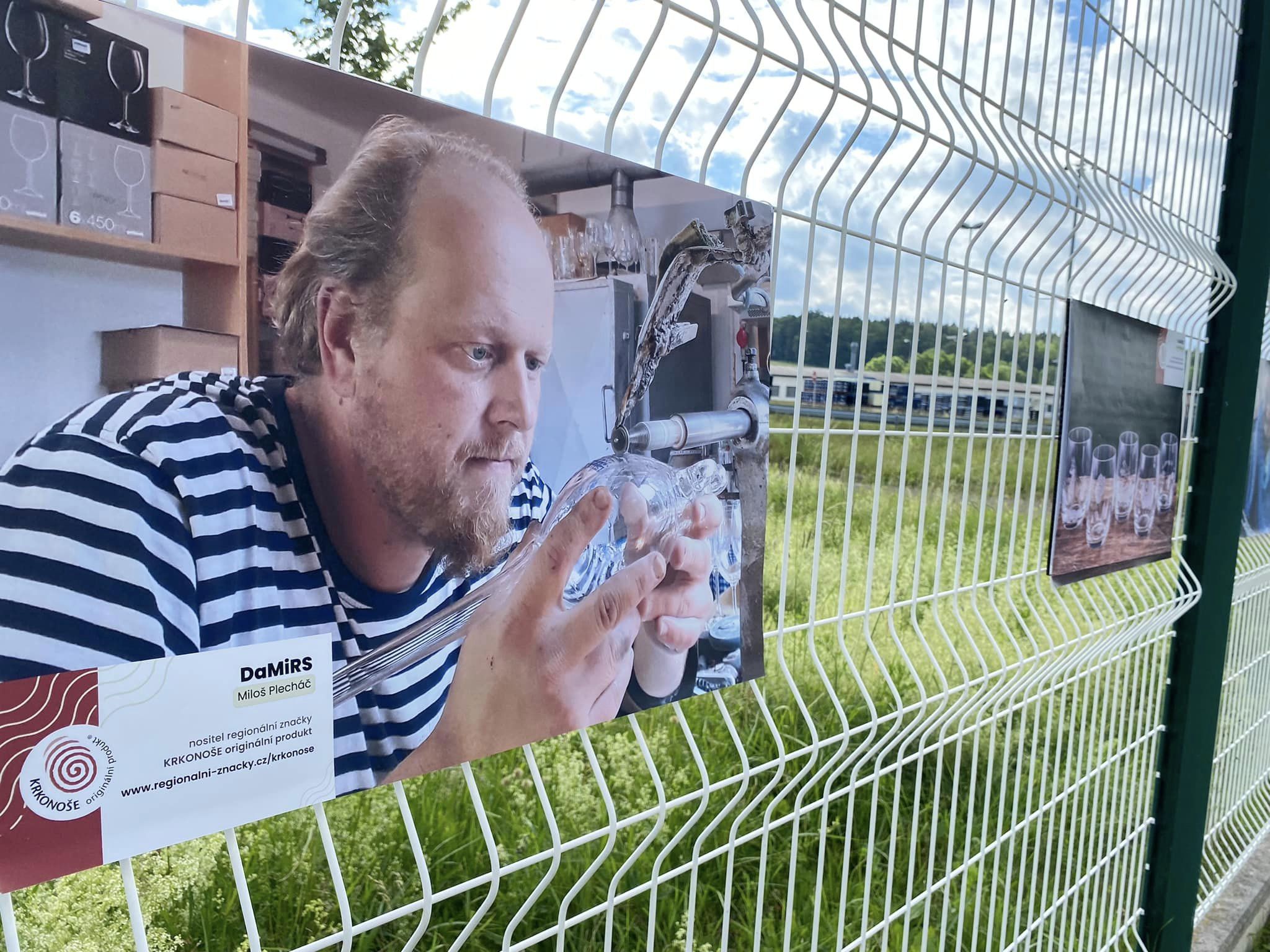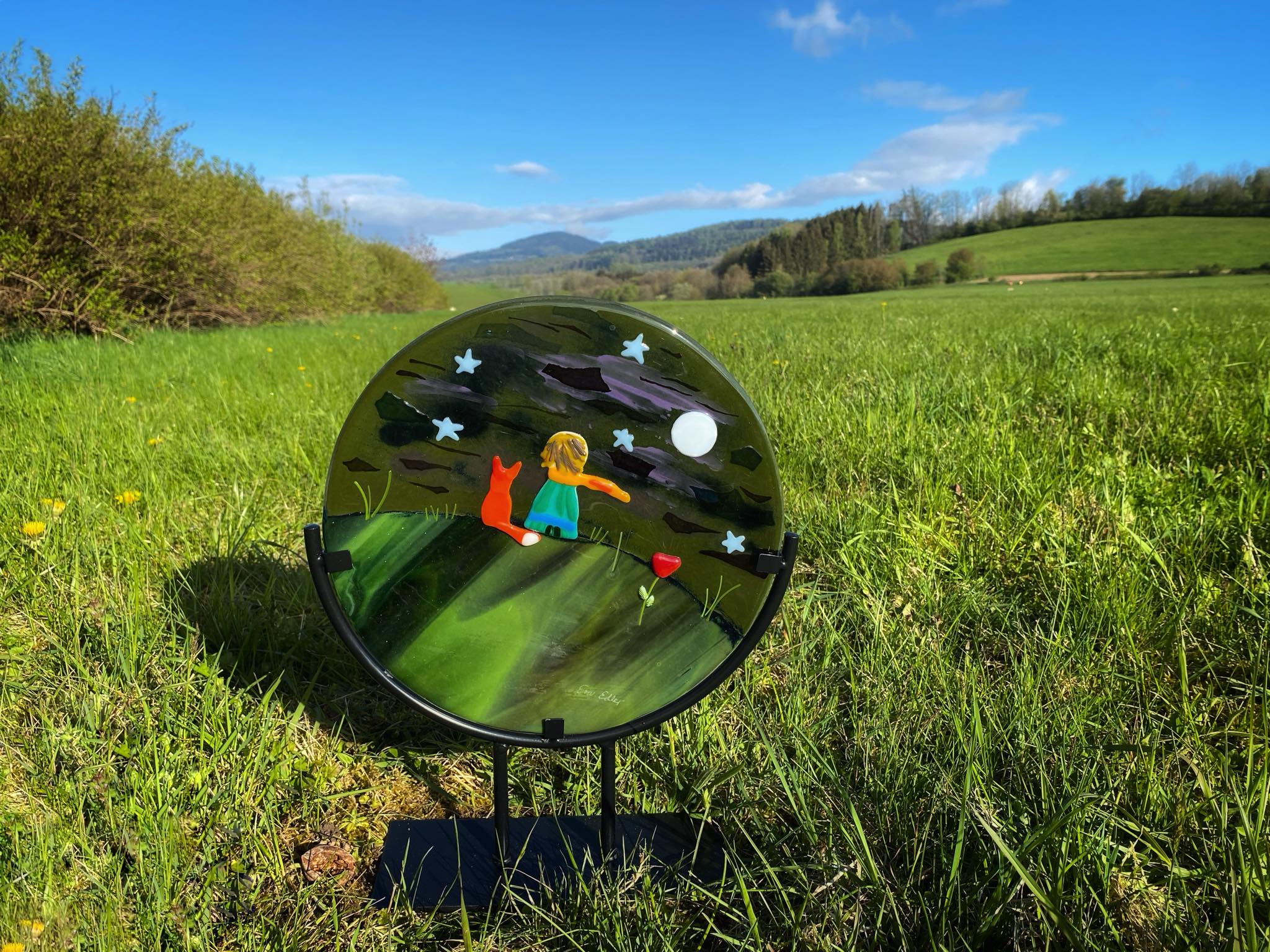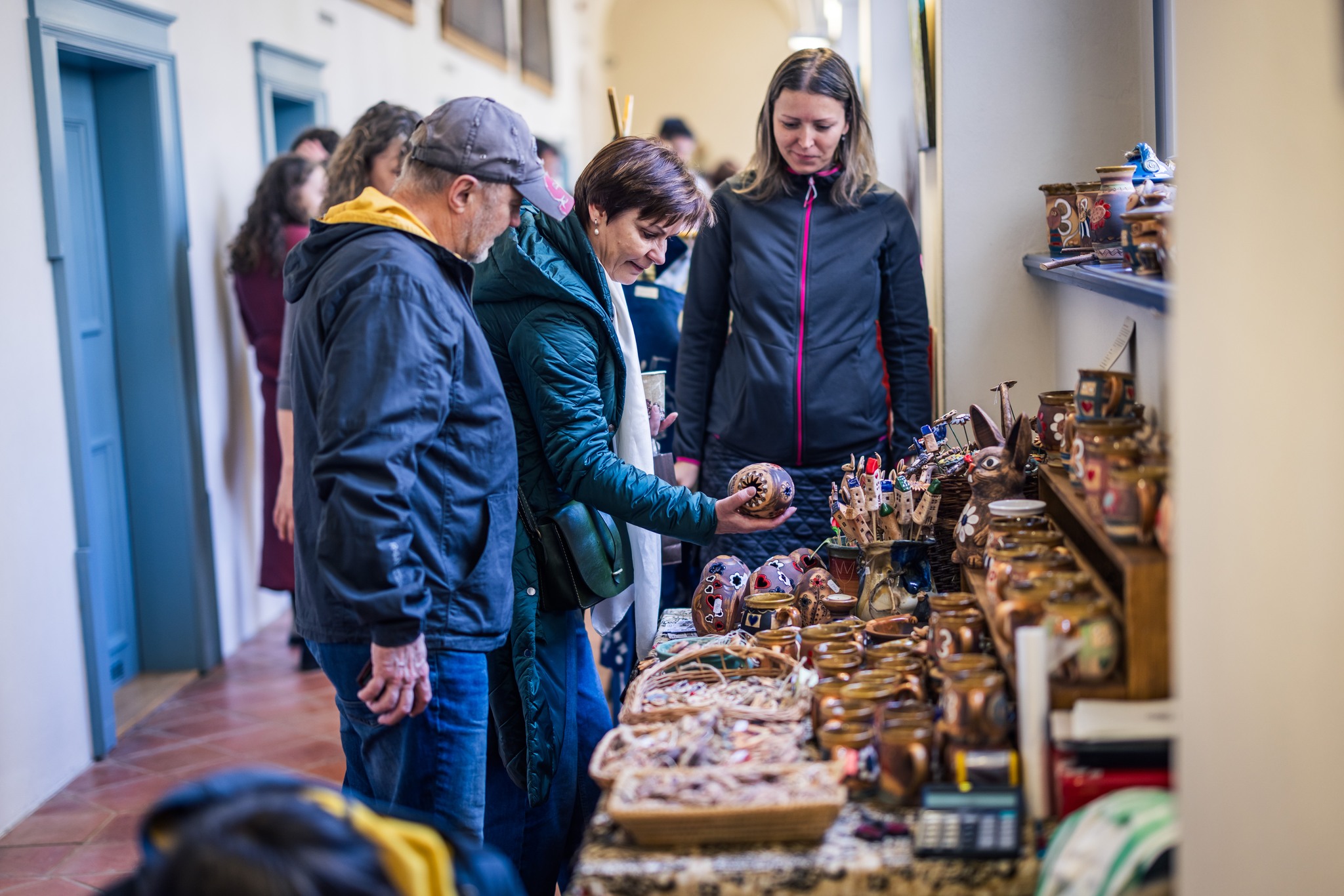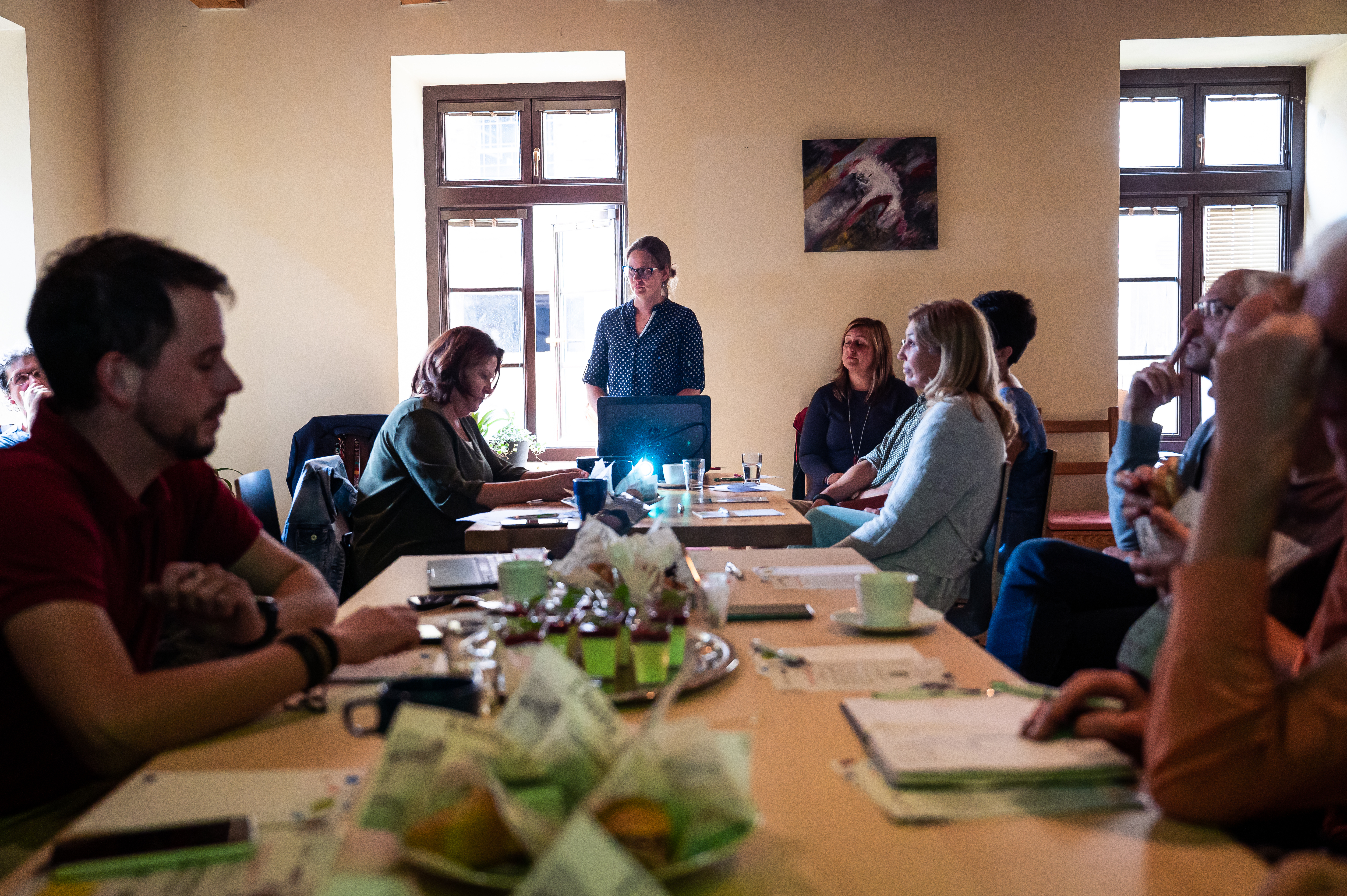Regaining a sense of belonging
KRKONOŠE original product
KRKONOŠE original product - tradition, habbits and cultural heritage
The regional brand of the Krkonoše Mountains represents high-quality local products and services that reflect the unique character, traditions, and natural resources of this beautiful mountain region. By supporting this brand, we contribute to sustainable development, local businesses, and cultural heritage preservation. Working together with artisans, cultural institutions, and local businesses strengthens the community and promotes the value of traditional craftsmanship.
Czechia
National
It addresses urban-rural linkages
It refers to other types of transformations (soft investment)
Yes
2025-02-03
Yes
Interreg Central Europe - 2024 - 2026, Central mountains project,
National funds - kralovehradecky region funds
No
No
As a representative of an organisation, in partnership with other organisations
The regional brand (RB) of the Krkonoše Mountains aims to preserve and promote the cultural, historical, and natural heritage of the region while supporting local artisans, businesses, and sustainable tourism. By certifying high-quality, locally made products and services, the brand strengthens regional identity, fosters economic growth, and encourages responsible consumer choices.
RB aligns closely with the New European Bauhaus values and principles, fostering a sustainable, inclusive, and aesthetically enriching future. By promoting local craftsmanship, heritage, and eco-conscious development, the brand contributes to building stronger communities and improving people’s quality of life in the long term.
The Krkonoše Mountains face several challenges related to environmental sustainability, economic resilience, and cultural preservation. The regional brand plays a crucial role in addressing these issues by supporting local businesses, promoting responsible tourism, and preserving traditional crafts.
RB aligns closely with the New European Bauhaus values and principles, fostering a sustainable, inclusive, and aesthetically enriching future. By promoting local craftsmanship, heritage, and eco-conscious development, the brand contributes to building stronger communities and improving people’s quality of life in the long term.
The Krkonoše Mountains face several challenges related to environmental sustainability, economic resilience, and cultural preservation. The regional brand plays a crucial role in addressing these issues by supporting local businesses, promoting responsible tourism, and preserving traditional crafts.
Sustainability – Respect for Nature and Resources
Aesthetics – Beauty and Cultural Expression
Collaboration
Cultural Continuity
Healthier Environments
The brand serves as a model for other regions by demonstrating how sustainability can be successfully integrated into local development.
1) Reduce environmental impact by promoting sustainable production and consumption.
2) Strengthen the local economy by encouraging small-scale production and entrepreneurship.
3) Ensure the survival of traditional craftsmanship and knowledge for future generations.
4) Encourage responsible tourism that benefits local communities and protects natural resources.
Certified products maintain traditional methods while adapting to modern demands (networking - designers and craftsmen).
Educational programs and workshops teach traditional skills to new generations (f.e.production of bead ornaments as a cultural heritage under the UNESCO sites).
Development of off-season attractions, reducing pressure on the environment during peak periods.
Tourists are encouraged to purchase local products, ensuring economic benefits remain in the region.
1) Reduce environmental impact by promoting sustainable production and consumption.
2) Strengthen the local economy by encouraging small-scale production and entrepreneurship.
3) Ensure the survival of traditional craftsmanship and knowledge for future generations.
4) Encourage responsible tourism that benefits local communities and protects natural resources.
Certified products maintain traditional methods while adapting to modern demands (networking - designers and craftsmen).
Educational programs and workshops teach traditional skills to new generations (f.e.production of bead ornaments as a cultural heritage under the UNESCO sites).
Development of off-season attractions, reducing pressure on the environment during peak periods.
Tourists are encouraged to purchase local products, ensuring economic benefits remain in the region.
The regional brand of the Krkonoše Mountains integrates design, craftsmanship, and cultural heritage to offer high-quality products and meaningful experiences. Through wood, textile, ceramic,
jewelry and glass products, the brand preserves the region’s artistic traditions while ensuring they remain relevant in contemporary life. This approach enriches the aesthetic appeal of local products and enhances the quality of experience for both residents and visitors.
Experience for people can be: workshops, excursion, exhibition, special open days, festivals, custom production and meeting authentic craftsmen and producers.
jewelry and glass products, the brand preserves the region’s artistic traditions while ensuring they remain relevant in contemporary life. This approach enriches the aesthetic appeal of local products and enhances the quality of experience for both residents and visitors.
Experience for people can be: workshops, excursion, exhibition, special open days, festivals, custom production and meeting authentic craftsmen and producers.
Our brand is committed to inclusion, ensuring that its benefits are accessible to all members of society, regardless of age, background, or financial means. By fostering economic, social, and cultural inclusion, the brand strengthens local communities and creates opportunities for diverse groups to engage with the region’s heritage, craftsmanship, and sustainable development.
Ceramic courses as therapy and a sustainable tourism product. Tasting of mountain beers combined with hiking. A course in sewing from waste material or glass engraving at the Maker Faire festival, which is a global event that celebrates creativity, innovation, and hands-on learning, bringing together makers, inventors, artists, engineers, and tinkerers from various fields.
Ceramic courses as therapy and a sustainable tourism product. Tasting of mountain beers combined with hiking. A course in sewing from waste material or glass engraving at the Maker Faire festival, which is a global event that celebrates creativity, innovation, and hands-on learning, bringing together makers, inventors, artists, engineers, and tinkerers from various fields.
The regional brand of the Krkonoše Mountains has been developed with significant involvement from citizens and civil society, ensuring that the project reflects the needs, aspirations, and values of the local community. The active participation of local residents, artisans, business owners, and civil society organizations has played a crucial role in shaping the brand, ensuring its success, and fostering sustainable development.
The direct involvement of local citizens and artisans ensures that the regional brand is authentic and reflects local values and traditions. By actively participating in the development process, residents feel a sense of ownership and pride in the brand, which strengthens their connection to it. This ownership contributes to the brand’s long-term sustainability.
Local artisans, small businesses, and marginalized groups benefit from increased visibility, access to new markets, and opportunities for professional development. Their involvement in the brand project empowers them economically and culturally, helping preserve traditional crafts and create new jobs.
The regional brand has fostered a stronger sense of community by bringing together diverse groups—artisans, business owners, civil society organizations, and citizens. Through joint efforts, the brand has become a tool for community building, where people work together to promote shared values like sustainability, tradition, and innovation.
Events and workshops organized by the brand serve as platforms for social interaction, creating spaces where people from different backgrounds can come together and share experiences.
The direct involvement of local citizens and artisans ensures that the regional brand is authentic and reflects local values and traditions. By actively participating in the development process, residents feel a sense of ownership and pride in the brand, which strengthens their connection to it. This ownership contributes to the brand’s long-term sustainability.
Local artisans, small businesses, and marginalized groups benefit from increased visibility, access to new markets, and opportunities for professional development. Their involvement in the brand project empowers them economically and culturally, helping preserve traditional crafts and create new jobs.
The regional brand has fostered a stronger sense of community by bringing together diverse groups—artisans, business owners, civil society organizations, and citizens. Through joint efforts, the brand has become a tool for community building, where people work together to promote shared values like sustainability, tradition, and innovation.
Events and workshops organized by the brand serve as platforms for social interaction, creating spaces where people from different backgrounds can come together and share experiences.
The regional brand of the Krkonoše Mountains was developed through a collaborative, multi-level approach, involving a wide range of stakeholders from local to European levels. These stakeholders played key roles in shaping, supporting, and implementing the brand, ensuring that it reflects local values, meets regional development goals, and aligns with broader European initiatives.
Local artisans, including those working in wood, textiles, glass, and other traditional crafts, were actively involved in defining the identity and products of the regional brand. They contributed their knowledge of local craftsmanship and provided authentic, high-quality goods that form the core of the brand.
Local residents were engaged through community consultations and surveys, offering insights on how the brand could best serve the community’s needs. Citizens also participated in events, workshops, and promotions related to the brand.
NGOs such as ARZ organized capacity-building initiatives for local artisans, provided training in sustainable practices, and helped with the promotion of the brand through regional networks and international project - Central Mountains. Public-private cooperation in the Sudetes Action Plan aimed at improving cooperation for regional products and tourism services promotion on the Czech and Polish side of the Giant Mountains and also the Czech-Polish border region, through public-private cooperation on both sides of the border, transnational exchange of knowledge, and mutual and shared promotional activities.
Municipalities and Kralovehradecky and Liberecky regions played a crucial role in the coordination and promotion of the regional brand. They promote (https://www.lksobe.cz/ and https://www.tonejlepsizkhk.cz/ and facilitated collaboration between various stakeholders, helped secure funding, and ensured alignment with regional development plans.
Local artisans, including those working in wood, textiles, glass, and other traditional crafts, were actively involved in defining the identity and products of the regional brand. They contributed their knowledge of local craftsmanship and provided authentic, high-quality goods that form the core of the brand.
Local residents were engaged through community consultations and surveys, offering insights on how the brand could best serve the community’s needs. Citizens also participated in events, workshops, and promotions related to the brand.
NGOs such as ARZ organized capacity-building initiatives for local artisans, provided training in sustainable practices, and helped with the promotion of the brand through regional networks and international project - Central Mountains. Public-private cooperation in the Sudetes Action Plan aimed at improving cooperation for regional products and tourism services promotion on the Czech and Polish side of the Giant Mountains and also the Czech-Polish border region, through public-private cooperation on both sides of the border, transnational exchange of knowledge, and mutual and shared promotional activities.
Municipalities and Kralovehradecky and Liberecky regions played a crucial role in the coordination and promotion of the regional brand. They promote (https://www.lksobe.cz/ and https://www.tonejlepsizkhk.cz/ and facilitated collaboration between various stakeholders, helped secure funding, and ensured alignment with regional development plans.
The design and implementation of the regional brand of the Krkonoše Mountains involved a multidisciplinary approach, bringing together various fields of expertise to create a brand that is not only authentic and sustainable but also innovative and culturally resonant. Here are the key disciplines and knowledge fields that played a role in the process:
1. Cultural Heritage and Anthropology
Role and Contribution: Experts in cultural heritage (KRNAP - national park museum) played a crucial role in ensuring that the regional brand authentically represented the local traditions, craftsmanship, and cultural identity of the Krkonoše Mountains. They helped document and preserve the cultural history, myths, and folklore, which were then integrated into the brand’s narrative.
Designers and branding experts played a key role in developing the visual identity of the regional brand, including the creation of logos, packaging, and promotional materials. They worked to make the brand visually appealing, recognizable, and aligned with contemporary design standards while respecting local traditions.
Professionals in the tourism and marketing sectors (destionation management, tourist boards, coordinator of regional brand) were key in promoting the regional brand, ensuring it was marketed effectively to both local residents and international visitors. They developed promotional campaigns, managed social media, and worked on strategic tourism partnerships to boost the region's appeal as a destination.
Economists and business development experts (Holky z marketingu, ARZ, CzechInvest, Chamber of Commerce) played a vital role in analyzing the market potential for the regional brand, identifying target markets, and developing business models that would ensure the brand’s economic sustainability. They helped set up partnerships, supply chains, and distribution channels to support local businesses.
1. Cultural Heritage and Anthropology
Role and Contribution: Experts in cultural heritage (KRNAP - national park museum) played a crucial role in ensuring that the regional brand authentically represented the local traditions, craftsmanship, and cultural identity of the Krkonoše Mountains. They helped document and preserve the cultural history, myths, and folklore, which were then integrated into the brand’s narrative.
Designers and branding experts played a key role in developing the visual identity of the regional brand, including the creation of logos, packaging, and promotional materials. They worked to make the brand visually appealing, recognizable, and aligned with contemporary design standards while respecting local traditions.
Professionals in the tourism and marketing sectors (destionation management, tourist boards, coordinator of regional brand) were key in promoting the regional brand, ensuring it was marketed effectively to both local residents and international visitors. They developed promotional campaigns, managed social media, and worked on strategic tourism partnerships to boost the region's appeal as a destination.
Economists and business development experts (Holky z marketingu, ARZ, CzechInvest, Chamber of Commerce) played a vital role in analyzing the market potential for the regional brand, identifying target markets, and developing business models that would ensure the brand’s economic sustainability. They helped set up partnerships, supply chains, and distribution channels to support local businesses.
The regional brand of the Krkonoše Mountains stands out as innovative in several key aspects when compared to more traditional or mainstream regional branding initiatives. Its unique approach integrates cultural heritage preservation, sustainability, local community engagement, and modern design, setting it apart from other regional brands.
Mainstream regional brands often focus on mass-produced, standardized products that cater to broad market demands. In contrast, the Krkonoše regional brand highlights local craftsmanship, showcasing artisanal products rooted in the region’s cultural heritage, such as glass, wood, and textile items. However, the innovative element is the way these traditional crafts are reinterpreted through modern design techniques, making them appealing to a contemporary audience.
While sustainability is becoming more common in branding, the Krkonoše regional brand incorporates environmental principles not just in the products but in the entire value chain, from production methods to marketing and distribution.
The Krkonoše regional brand actively involves local citizens, artisans, community organizations, and marginalized groups in the creation and promotion of the brand. This participatory approach ensures the brand represents the full diversity of the community and addresses the needs and aspirations of all groups, including those who have traditionally been left out of mainstream economic development.
The Krkonoše regional brand is based on cross-disciplinary collaboration. Experts from fields such as design, tourism, sustainability, cultural heritage, business development, and community engagement all work together to create a cohesive brand strategy.
Focused mostly on the local level but is also deeply connected to broader European values, such as those promoted by the New European Bauhaus initiative -sustainability, inclusivity, and aesthetics.
Mainstream regional brands often focus on mass-produced, standardized products that cater to broad market demands. In contrast, the Krkonoše regional brand highlights local craftsmanship, showcasing artisanal products rooted in the region’s cultural heritage, such as glass, wood, and textile items. However, the innovative element is the way these traditional crafts are reinterpreted through modern design techniques, making them appealing to a contemporary audience.
While sustainability is becoming more common in branding, the Krkonoše regional brand incorporates environmental principles not just in the products but in the entire value chain, from production methods to marketing and distribution.
The Krkonoše regional brand actively involves local citizens, artisans, community organizations, and marginalized groups in the creation and promotion of the brand. This participatory approach ensures the brand represents the full diversity of the community and addresses the needs and aspirations of all groups, including those who have traditionally been left out of mainstream economic development.
The Krkonoše regional brand is based on cross-disciplinary collaboration. Experts from fields such as design, tourism, sustainability, cultural heritage, business development, and community engagement all work together to create a cohesive brand strategy.
Focused mostly on the local level but is also deeply connected to broader European values, such as those promoted by the New European Bauhaus initiative -sustainability, inclusivity, and aesthetics.
The methodology used in the creation and implementation of the Krkonoše regional brand is based on a holistic, integrated, and participatory approach that involves multiple stages, each focusing on creating a brand that reflects the region’s cultural heritage, sustainability, and modern needs. The methodology ensures that the brand is not only a marketing tool but also a reflection of the community's values, history, and aspirations. We have Brand marketing strategy - https://1url.cz/IrZh0, Graphics manual and ARZ Strategy.
Local artisans, including those working in wood, textiles, glass, and other traditional crafts, were actively involved in defining the identity and products of the regional brand. They contributed their knowledge of local craftsmanship and provided authentic, high-quality goods that form the core of the brand.
Local residents were engaged through community consultations and surveys, offering insights on how the brand could best serve the community’s needs. Citizens also participated in events, workshops, and promotions related to the brand.
Municipalities and regional development agencies played a crucial role in the coordination and promotion of the regional brand. They facilitated collaboration between various stakeholders, helped secure funding, and ensured alignment with regional development plans.
NGOs such as ARZ organized capacity-building initiatives for local artisans, provided training in sustainable practices, and helped with the promotion of the brand through regional networks. And also cooperate in international project - Central mountains. Public-private cooperation in the Sudetes
Action Plan aimed at improving cooperation for regional products and tourism services promotion on the Czech and Polish side of the Giant Mountains and also the Czech-Polish border region, through public-private cooperation on both sides of the border, transnational exchange of knowledge, and mutual and shared promotional activities.
Local residents were engaged through community consultations and surveys, offering insights on how the brand could best serve the community’s needs. Citizens also participated in events, workshops, and promotions related to the brand.
Municipalities and regional development agencies played a crucial role in the coordination and promotion of the regional brand. They facilitated collaboration between various stakeholders, helped secure funding, and ensured alignment with regional development plans.
NGOs such as ARZ organized capacity-building initiatives for local artisans, provided training in sustainable practices, and helped with the promotion of the brand through regional networks. And also cooperate in international project - Central mountains. Public-private cooperation in the Sudetes
Action Plan aimed at improving cooperation for regional products and tourism services promotion on the Czech and Polish side of the Giant Mountains and also the Czech-Polish border region, through public-private cooperation on both sides of the border, transnational exchange of knowledge, and mutual and shared promotional activities.
The Krkonoše regional brand tackles several significant global challenges by offering innovative local solutions. The brand is designed to address broader issues such as climate change, economic inequality, cultural preservation, and sustainability, among others, while staying deeply rooted in the region’s local context and traditions.
Regional brand emphasizes eco-tourism as an alternative to mass tourism, promoting low-impact travel that preserves the natural environment. Local solutions such as eco-friendly accommodations, sustainable transport options, and nature-based experiences reduce the environmental footprint.
Economic inequality, particularly in rural or less-developed regions, is a global challenge. Many rural areas face challenges such as limited job opportunities, population decline, and dependence on non-sustainable industries.
The Krkonoše brand places significant importance on preserving and celebrating local crafts such as glassblowing, woodworking, and textile arts. By showcasing the work of local artisans, the brand ensures that these traditions remain alive and are valued in modern contexts.
The brand creates a narrative around the Krkonoše Mountains, including local folklore, history, and craftsmanship. This helps to reinforce the region’s unique cultural identity, countering the tendency for global brands to overshadow local heritage.
Regional brand emphasizes eco-tourism as an alternative to mass tourism, promoting low-impact travel that preserves the natural environment. Local solutions such as eco-friendly accommodations, sustainable transport options, and nature-based experiences reduce the environmental footprint.
Economic inequality, particularly in rural or less-developed regions, is a global challenge. Many rural areas face challenges such as limited job opportunities, population decline, and dependence on non-sustainable industries.
The Krkonoše brand places significant importance on preserving and celebrating local crafts such as glassblowing, woodworking, and textile arts. By showcasing the work of local artisans, the brand ensures that these traditions remain alive and are valued in modern contexts.
The brand creates a narrative around the Krkonoše Mountains, including local folklore, history, and craftsmanship. This helps to reinforce the region’s unique cultural identity, countering the tendency for global brands to overshadow local heritage.
Regional brand has successfully contributed to regaining a strong sense of belonging and community identity among both local residents and visitors. Through a series of well-thought-out initiatives and strategies, the brand has not only enhanced the emotional connection people feel toward the Krkonoše region but also fostered a sense of pride, unity, and ownership among diverse groups. Here’s an overview of the key results, outcomes, and impacts the brand has had in this regard, as well as the benefits for both direct and indirect beneficiaries.
It has significantly enhanced the local identity by showcasing the region's rich cultural heritage, history, and natural beauty. By focusing on local craftsmanship, traditions, and values, the brand has become a symbol of pride for residents.
Public campaigns and exhibitions have brought attention to local history, art and traditions, reinforcing a collective understanding of the region's heritage.
By promoting local products such as glass, wood, and textiles, the regional brand has revitalized local economies and provided businesses with new market access.
The regional brand directly benefits artisans by providing them with new markets, exposure, and financial opportunities. Through collaborations, they also gain access to training and development that improve the quality of their products.
Tourists benefit from authentic and unique experiences that connect them to the local culture. These experiences foster a deeper sense of connection with the place and its people, leading to increased tourism revenue and a sense of cultural exchange.
It has significantly enhanced the local identity by showcasing the region's rich cultural heritage, history, and natural beauty. By focusing on local craftsmanship, traditions, and values, the brand has become a symbol of pride for residents.
Public campaigns and exhibitions have brought attention to local history, art and traditions, reinforcing a collective understanding of the region's heritage.
By promoting local products such as glass, wood, and textiles, the regional brand has revitalized local economies and provided businesses with new market access.
The regional brand directly benefits artisans by providing them with new markets, exposure, and financial opportunities. Through collaborations, they also gain access to training and development that improve the quality of their products.
Tourists benefit from authentic and unique experiences that connect them to the local culture. These experiences foster a deeper sense of connection with the place and its people, leading to increased tourism revenue and a sense of cultural exchange.

